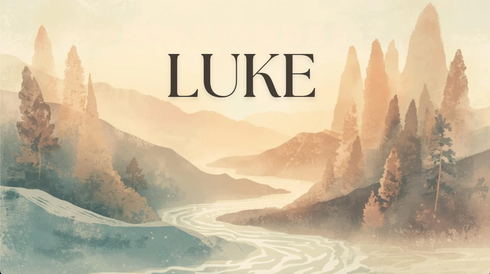
Ezekiel 39: Victory in the Valley
Ezekiel 39 presents a powerful message about God's ultimate control and sovereignty, even in what appears to be the darkest moments. In this chapter, we witness the conclusion of God's judgment against Gog, followed by the beautiful promise of restoration for Israel. The underlying theme, "Victory in the Valley," challenges our conventional thinking about where and how we experience God's presence and power.
Throughout the Bible, mountains typically symbolize triumph and victory, while valleys represent defeat and hardship. However, Ezekiel 39 flips this narrative, showing how God brings victory even in valley experiences. The valley, traditionally a place of death and defeat, becomes a place where God demonstrates His glory and power. This powerful imagery serves as a reminder that God's presence isn't limited to our mountaintop experiences but extends into our deepest valleys.
The chapter begins with God's declaration of judgment against Gog, the symbolic representation of all forces that oppose God and His people. God says, "I am your enemy, O Gog," and proceeds to describe how He will utterly defeat this adversary on the mountains of Israel. This vivid imagery of God knocking weapons from Gog's hands and feeding his armies to vultures and wild animals emphasizes God's complete control and sovereignty. The message is clear: nothing happens outside God's control, and His justice will ultimately prevail.
Following the defeat of Gog, Ezekiel describes an extensive cleanup process. The people of Israel will spend seven months burying the dead and seven years using the abandoned weapons for fuel. This extended cleanup period serves as a testament to the thoroughness of God's victory and justice. The valley where Gog's hordes are buried will be renamed "the Valley of Gog's Hordes," standing as a permanent reminder of God's faithfulness and power. This renaming transforms a place of death into a monument of God's victory.
Perhaps the most significant aspect of this chapter is God's purpose in all these events: "I will demonstrate my glory to the nations." Throughout Ezekiel 39, God repeatedly states that through these actions, people "will know that I am the Lord." This reveals that God's ultimate goal is recognition of His sovereignty and holiness. Even the judgment against Israel that led to their exile is explained as God's response to their unfaithfulness, but with the ultimate purpose of restoration and redemption.
The practical application for us today is profound. Just as God demonstrated His reality through various circumstances in Ezekiel's time, we too can witness God's presence in every aspect of our lives—not just in obvious blessings but also in challenges and valleys. When we persevere through difficulties, receive unexpected encouragement in dark moments, or experience peace beyond understanding, we're witnessing God's reality. The chapter challenges us to look for God in all circumstances, recognizing that "you end up finding what you're looking for."
Ezekiel 39 concludes with God's promise of restoration for Israel. After exile and punishment, God promises to bring His people home to live in peace. This beautiful transition from judgment to restoration mirrors the journey many of us experience in our spiritual lives. God's discipline, though painful, is always directed toward restoration and renewal. This gives us hope that our valley experiences aren't the end of the story but often the beginning of a new chapter of experiencing God's faithfulness.
Let’s read it together.
#biblebreakdown
Get this text to you daily by texting "rlcBible" to 94000.
The More we Dig, The More We Find.




